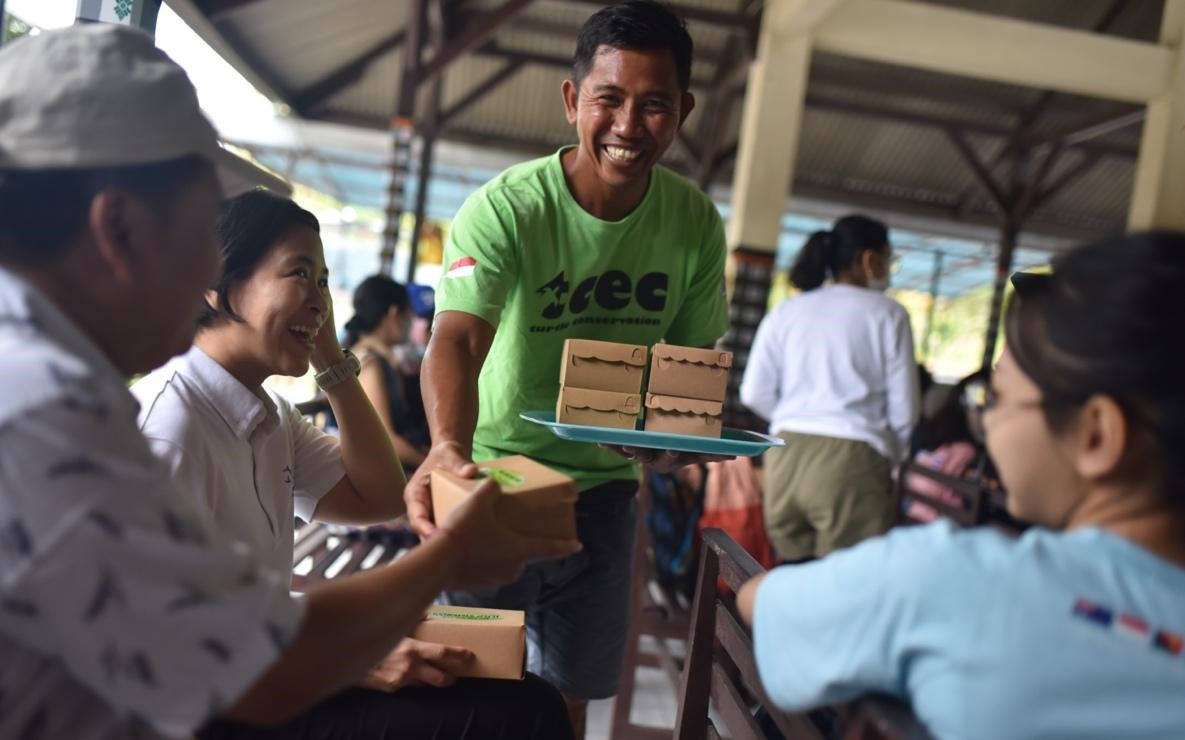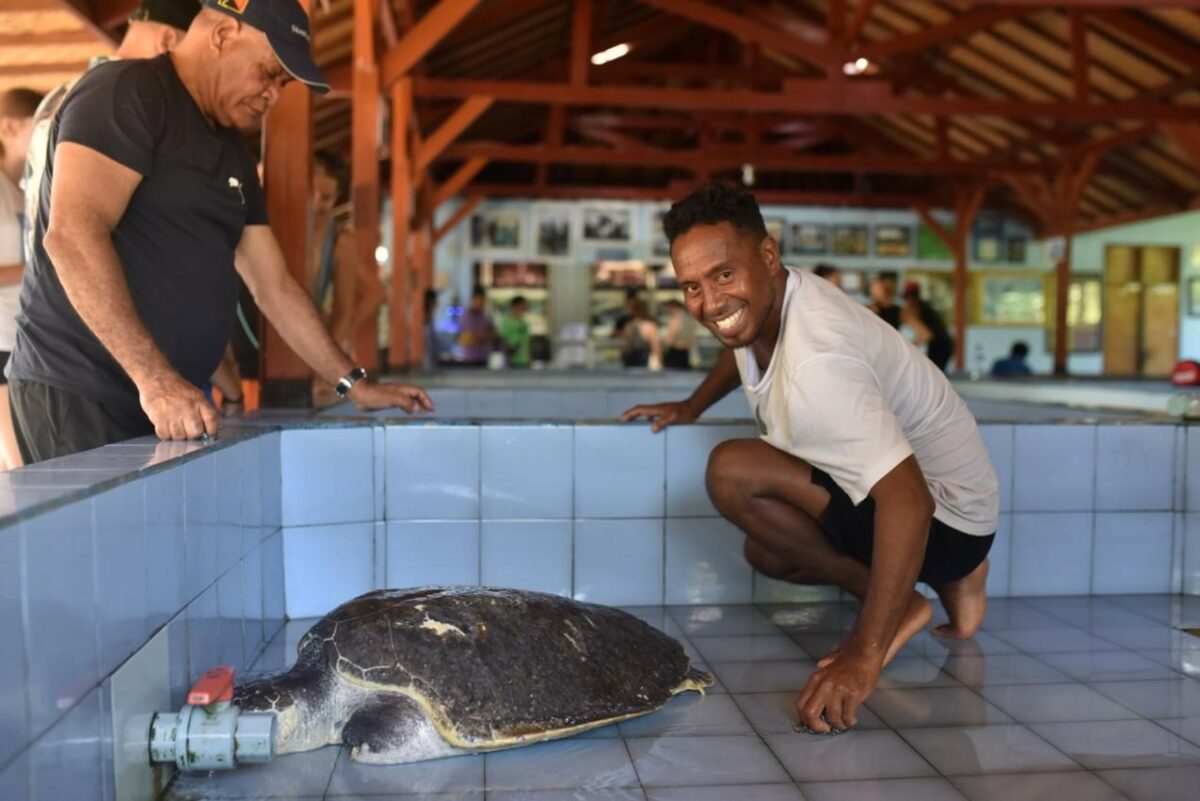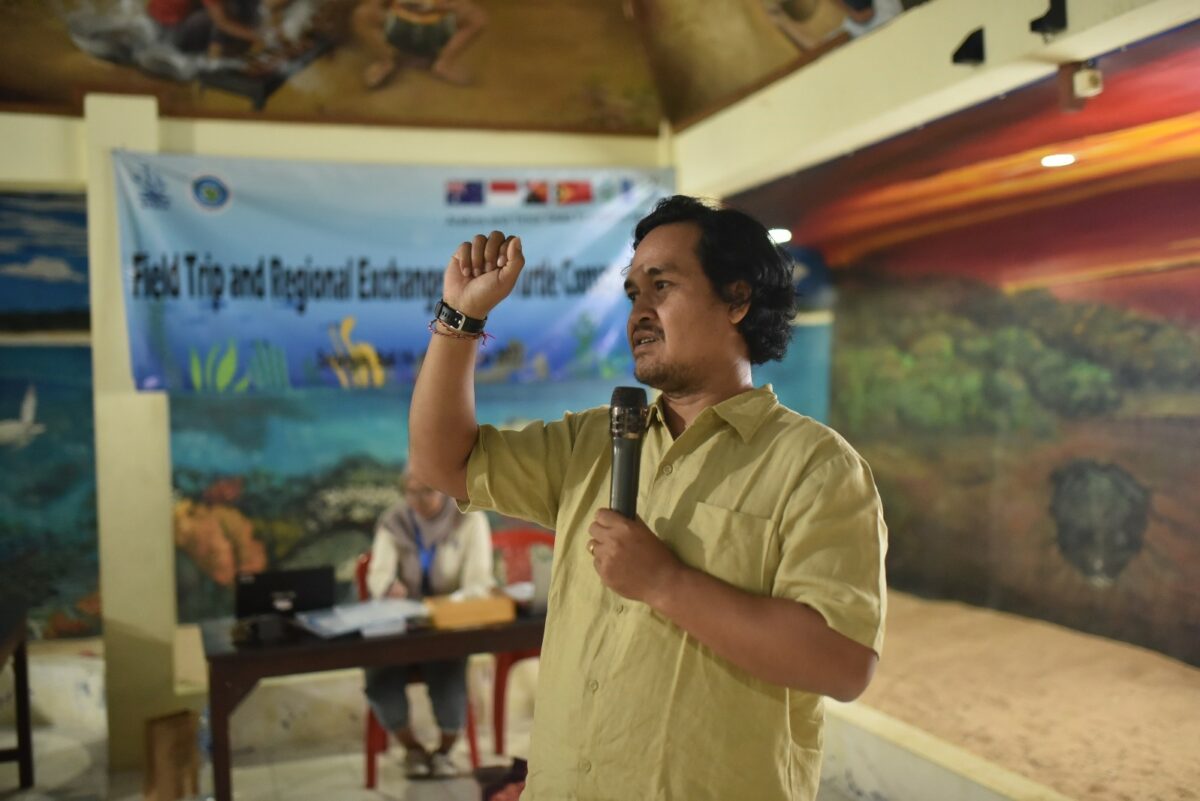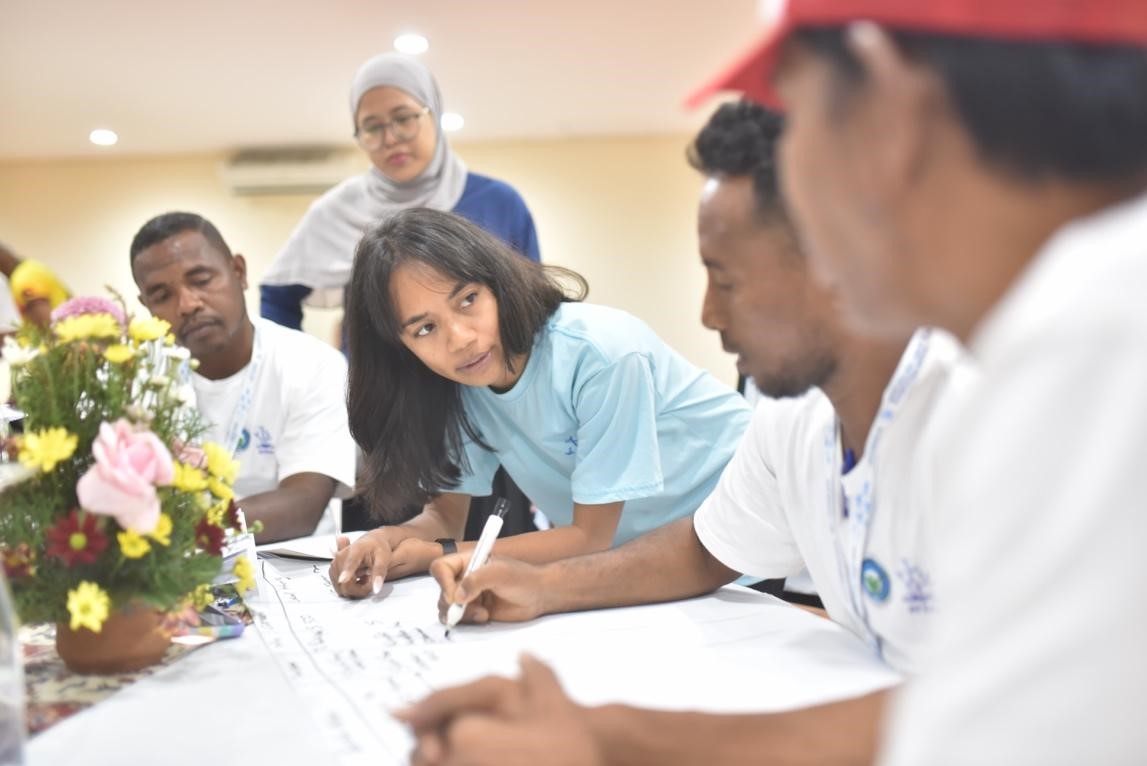The Arafura and Timor Seas Ecosystem Action Phase II (ATSEA-2) Project hosted a Regional Exchange on Sea Turtle Conservation in Bali, from 14-16 September 2023. The event that was organised in collaboration with Turtle Conservation and Education Center (TCEC), gathered together teams of local community members and government representatives from Indonesia, Timor-Leste and Papua New Guinea in order to share experience, develop knowledge and coordinate sea turtle conservation activities across the Arafura Timor Seas (ATS) region.

A delegation of 16 participants joined the regional exchange, comprising three representatives from Papua New Guinea, seven from Timor-Leste and six from Indonesia. The group was hosted and accompanied by members of the ATSEA-2 Project Regional Project Management Unit (RPMU).
Over three days, participants developed the skills and solutions they need to improve conservation efforts in their respective locations, while also establishing the collaborative regional networks and partnerships necessary for the resolution of transboundary issues.
Turtle Conservation in Action at the TCEC

the TCEC sea turtle tanks on day two
Day one of the regional exchange began with a trip to TCEC, a multi-purpose breeding, rehabilitation and edu-tourism facility in Serangan, Bali. Founded in 2006, TCEC is staffed by members of the local community and supported by a team of conservation experts, veterinarians, student interns and volunteers. At the time of the regional exchange, these volunteers answered delegates’ questions about the various species in their care, which included olive ridley, green and hawksbill turtles.
Following a series of welcome speeches, the first educational sharing session was delivered by local vet and sea turtle expert, I Made Jaya Ratha. Entitled ‘Sea Turtle 101’, this seminar helped participants develop a more comprehensive understanding of sea turtles, including their conservation status, their morphology and habitat, while also revealing how to accurately identify different species.
After a brief coffee break, the second session provided an introduction to sea turtle conservation, including the threats these animals face, the principles of protection, and how individuals and communities can contribute to these efforts. Upon completion of the day’s activities, the participants journeyed to Jimbaran, where they shared a seafood dinner together at sunset on the beach.
Developing Knowledge, Gaining Experience

Day two began at Serangan Port, where the delegation embarked on a visit to a known turtle feeding site off the coast of Sanur. They collected seaweed samples, inspected the condition of the feeding grounds and then returned to the centre, where they joined the daily tank cleaning activities. This provided them with hands-on experience of the centre’s facilities, helping them develop a clearer understanding of the essential principles and practices involved in maintaining pools or tanks for sea turtles, thereby ensuring the health and well-being of animals recuperating in captivity.
After that, the group returned to the seminar room, where I Made Jaya Ratha delivered an in-depth presentation on monitoring, data collection and the protocols for rescuing or relocating sea turtles. Next, I Made Sukanta from the TCEC provided an introduction to the history of the centre, including its infrastructure, operations and management structure, while also providing insights into how it operates as a hub for edutourism and conservation partnerships.
Finally, in the evening the group proceeded to Biaung Beach on the north-eastern coast of Denpasar, where they joined a sea turtle monitoring activity with members of the TCEC. Here they inspected nesting sites, learned about the requirements for successful laying, and even released a group of 100 olive ridley hatchlings into the sea.
Formulating Plans and Developing Best Practices

The third and final day of the regional exchange took place at the Mercure Hotel in Kuta. Here, the groups took part in a series of case studies, presentations and plenary sessions. All participants completed a post-event test to assess their knowledge, before sharing lessons learned and outlining the ways in which the experience will benefit their respective conservation projects.
The regional exchange provided participants with a deeper understanding of sea turtle species found in the ATS region, while also providing them with the technical knowledge and the practical experience they need to establish and extend their own conservation efforts. Most importantly, the event helped to bridge the distances between each delegation, helping them to share knowledge, formulate best practices and forge bonds that will support regional conservation efforts in the long term.
By Chris Alexander


